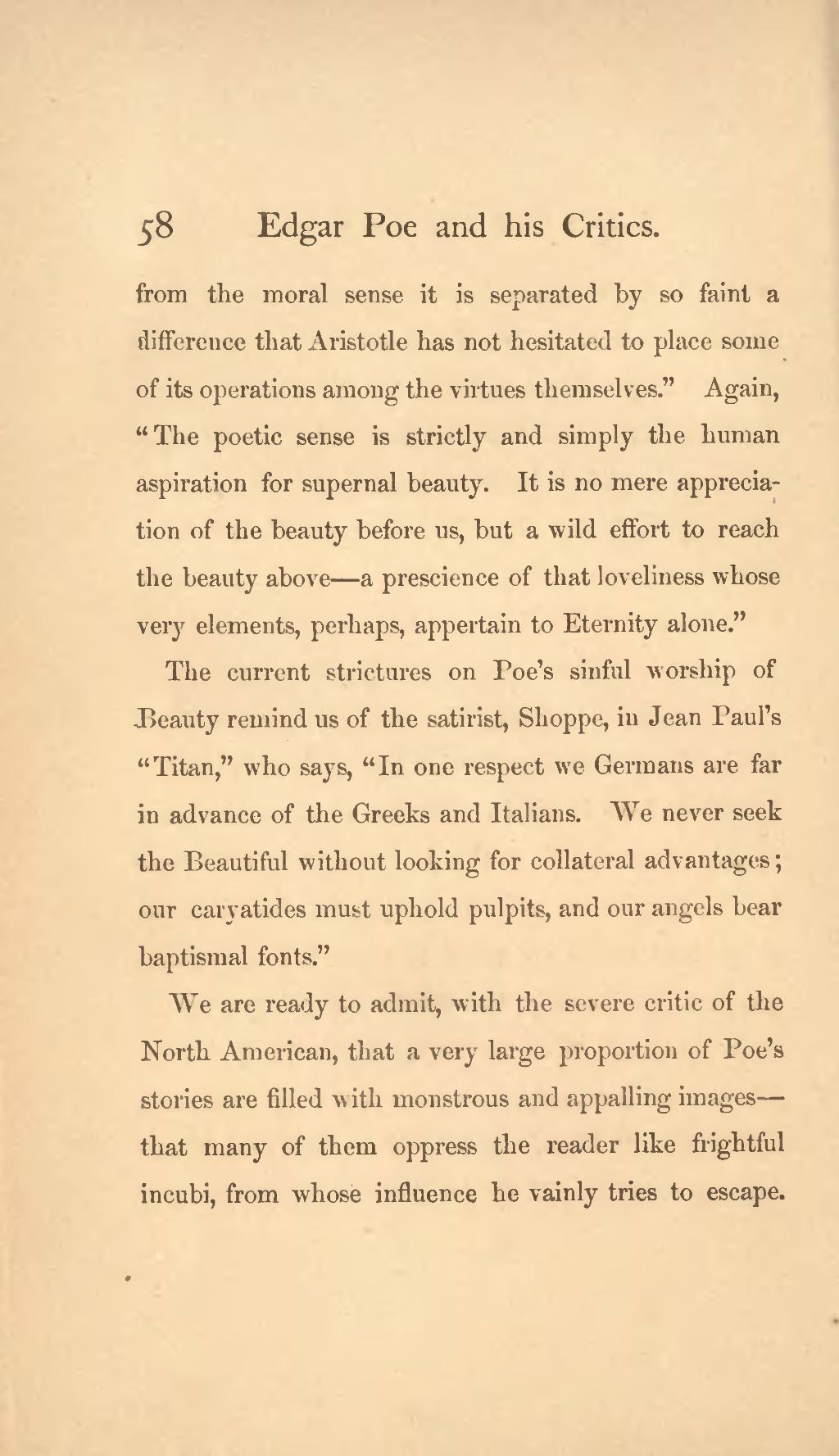from the moral sense it is separated by so faint a difference that Aristotle has not hesitated to place some of its operations among the virtues themselves.” Again, “The poetic sense is strictly and simply the human aspiration for supernal beauty. It is no mere appreciation of the beauty before us, but a wild effort to reach the beauty above—a prescience of that loveliness whose very elements, perhaps, appertain to Eternity alone.”
The current strictures on Poe’s sinful worship of Beauty remind us of the satirist, Shoppe, in Jean Paul’s “Titan”, who says, “In one respect we Germans are far in advance of the Greeks and Italians. We never seek the Beautiful without looking for collateral advantages; our caryatides must uphold pulpits, and our angels bear baptismal fonts.”
We are ready to admit, with the severe critic of the North American, that a very large proportion of Poe’s stories are filled with monstrous and appalling images—that many of them oppress the reader like frightful incubi, from whose influence he vainly tries to escape.
